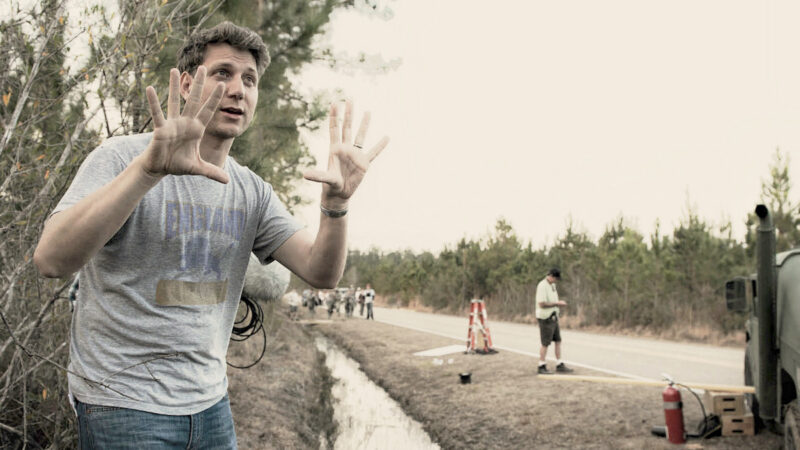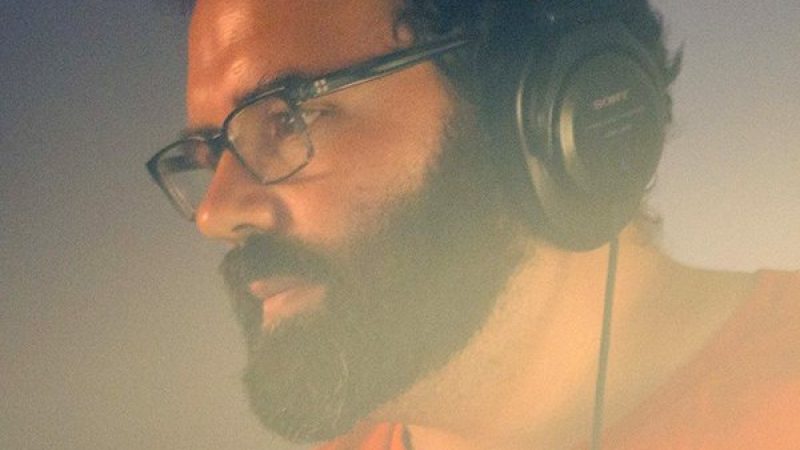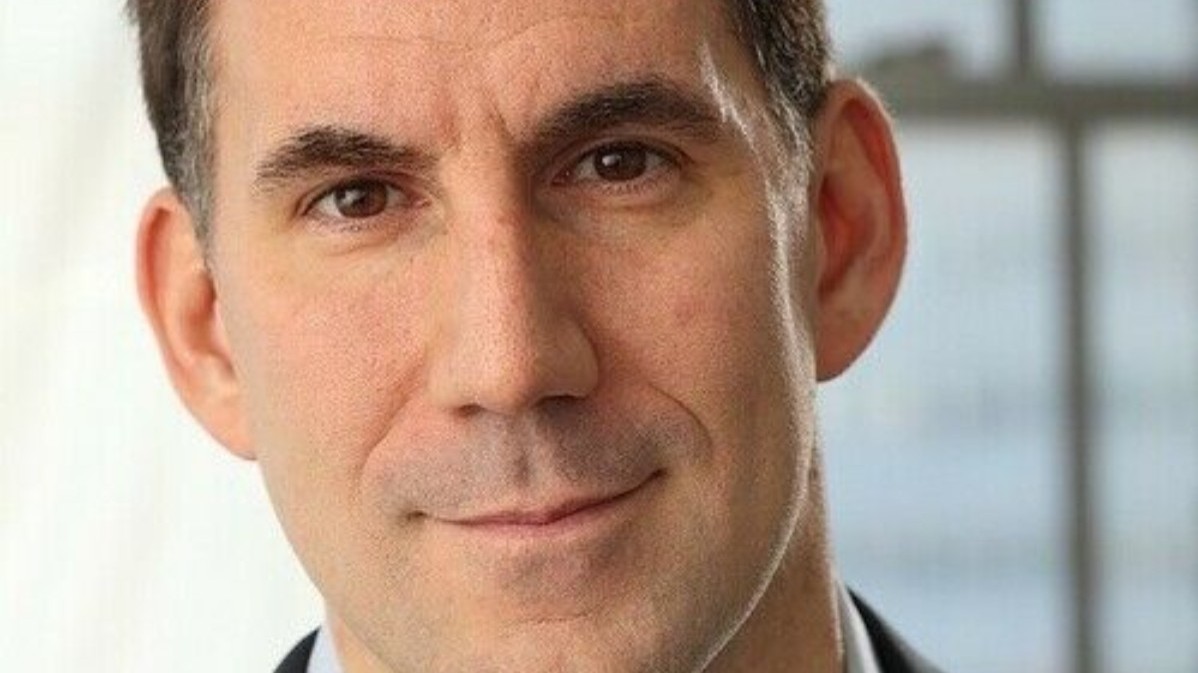
Actor-turned-creator Jerry Topitzer takes aim at the health care industry with his award-winning comedy web series, Upcode. The 6-episode first season follows an honest doctor who gets pressured by a behemoth insurance company to overbill patients in order to cover his basic costs.
Sound familiar? This is a very real issue Jerry first learned about years ago while working for his psychologist father. The problem has only gotten worse which led him to strike back using his biting wit and writing skills to create the new series. And, his efforts have paid off, earning Jerry and Upcode awards at several festivals, including Vancouver Independent Film Festival, Tokyo Int’l Short FF, Roma Int’l Short FF, and Seoul Int’l Short FF.
Prior to five years ago, Jerry was an investment banker who only dreamed of a full-time creative career. Since then, he has emerged as a fresh talent performing on stage and screen, in addition to producing the IFC Midnight feature film release, Centigrade.
indieactivity: Briefly explain your new web series “Upcode?”
Jerry Topitzer (JT): Upcode is a satirical comedy about a doctor’s practice whose staff are forced to consider medical fraud in order to save the practice from financial ruin when it becomes the target of an evil insurance company. It’s an ensemble comedy that shines a light on the absurdity of our healthcare system and the lengths a small practice has to go to battle the power of massive insurance companies that control their and patients’ fates.
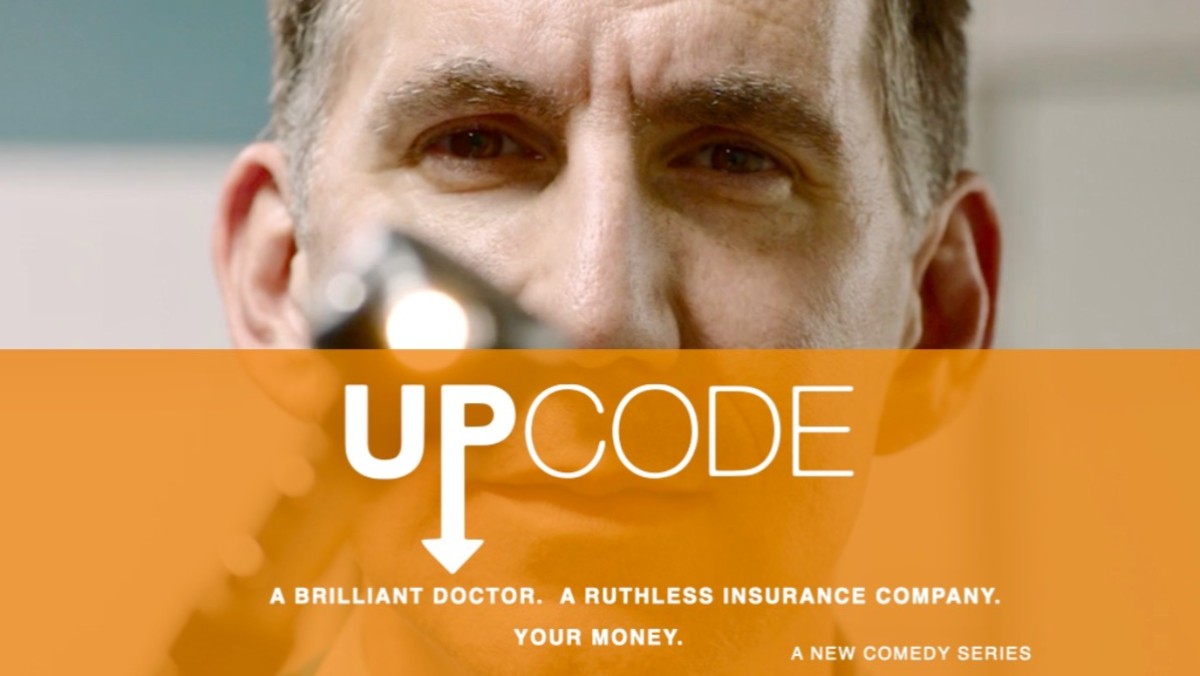
Where did you discover the idea for it?
Jerry Topitzer (JT): When I was in high school my father who was a psychologist had me help him occasionally with the paperwork that he had to submit to insurance companies to get paid. I saw firsthand how much power insurance companies had and how they so spuriously and arbitrarily denied claims. Fast forward to a few years ago when a good friend had told me a story about a visit he had to a doctor who was so mean and judgmental to him that it was actually awkwardly funny. So, we all decided to make a short film about it. I played the doctor in that short and in preparing for the role, I researched extensively about primary care physicians and how they and doctors, in general, are actually quite unhappy in their profession – which surprised me. Half are actively trying to leave the profession and most would not recommend it to their children.
The reason is the overwhelming paperwork they have to submit to insurance companies and fights they have with them and how patients get screwed over in the middle of these fights. A flashback to my father’s experience hit me immediately and in a very personal way. I also realized that I and everyone I know has had or knows someone who has had an awful experience with an insurance company not paying a claim. I sort of instinctually sensed from my improv days that this absurdity could be ripe for satire and comedy. And the more I researched about the many layers of absurdity (insurance companies, conflicts between nurses and doctors, pharmaceutical companies and their relentless sales reps) the more I felt this could not only be quite an important topic because it’s at the core of the challenges of our healthcare system but also could serve to be an entire series.
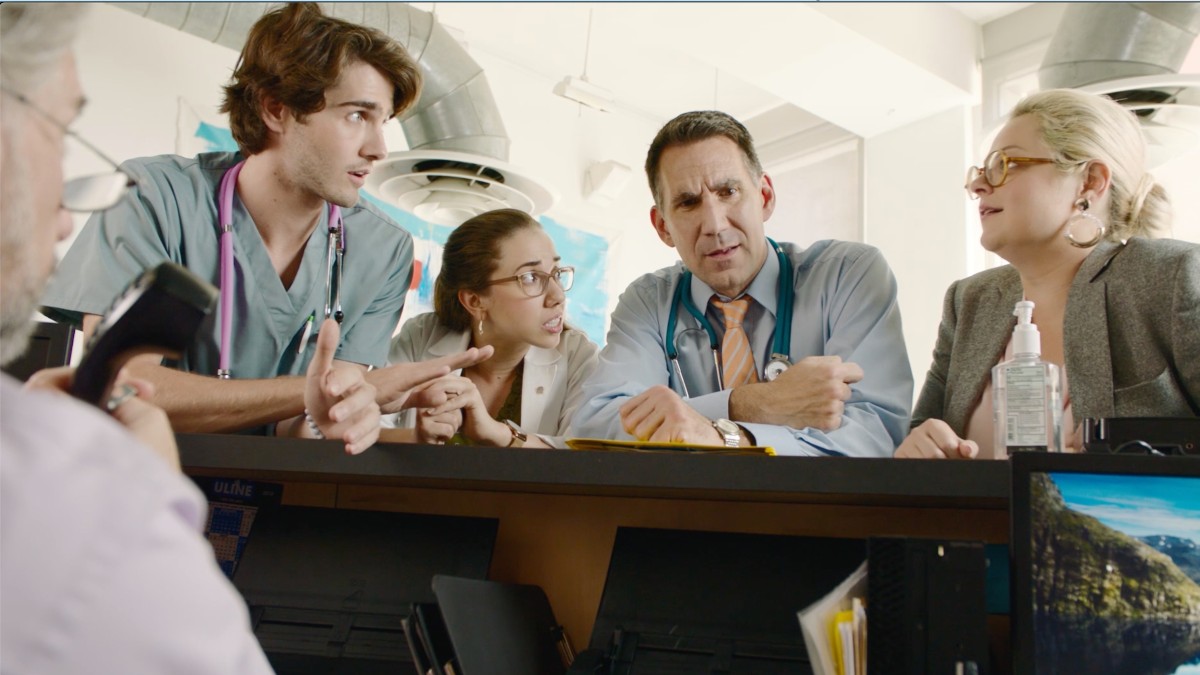
What were the first steps you took to make it happen?
Jerry Topitzer (JT): I partnered up with an award-winning screenwriter who knows comedy, in Greg Fortier. I had written a lot, and done a lot of improv in NYC but I wanted someone great as a co-writer who understood TV screenwriting and story structure in a TV sense. Greg and I then worked with the core four lead actors to improvise around the script drafts, then we’d re-write and repeat that process until our script was as tight as possible. Then I luckily managed to convince Drue Pennella of Pure Motion Pictures to direct and he and his partner, Ted Herod, to run the production. All of those key partnerships (writer, core actors, and director/co-producer) were so critical to making this happen
Anything you wish you could “do-over” on the project?
Jerry Topitzer (JT): Honestly, we got so lucky in so many ways from our casting to getting our team together, falling into great locations for filming, I don’t know how we could have done better. I learned so much about the role of the producer which I will take with me and for the next shoots and other productions. I think the big lesson was to trust my instincts. There were a few rounds of feedback we received from “industry folks” which was honestly not right in the end, and that set us back a bit (fortunately nothing dramatic). But especially with comedy, if you have a great team and everyone understands the tone, a lesson I took was yes, it’s great to get some outside feedback but it’s almost better to just trust yourself first.
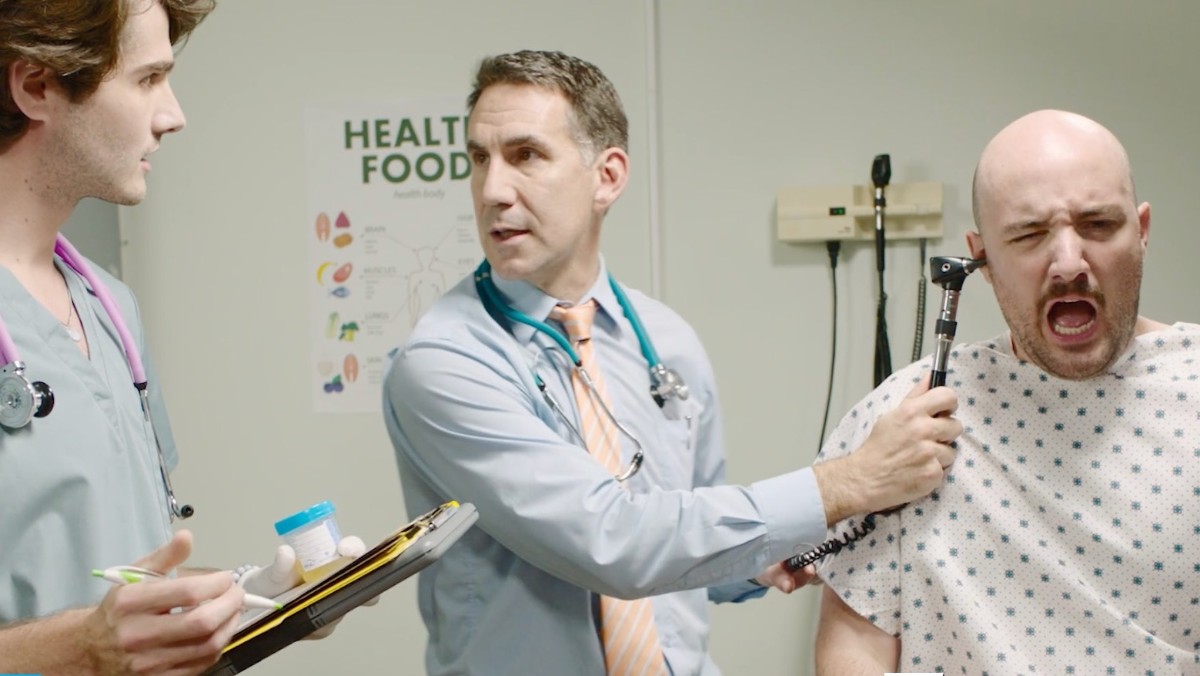
How did you get into the business?
Jerry Topitzer (JT): Circuitously! I actually worked on Wall Street for 18 years and for the last 8 years of my career, I started to do improv at night as I was clawing my way up the corporate ladder by day. I led this odd double life performing more and more, falling in love with it, hiding it from my stuffy day job. Over time I just loved performing and comedy so much, that 7 years ago, I decided to leave my corporate job to chase my creative passion full-time.
What made you want to create your own projects?
JT: I just love creating comedy. I think it’s my improv background but I find that creative process so enjoyable, especially with a group of talented people you love being around. There’s really nothing better.
Do you think being an Actor has helped you as a Creator?
JT: Absolutely because being an actor helps me trust a good actor’s best instincts. The best actors can really help your writing. Especially in a series, being open to what an actor brings to a role can be such a gift in terms of how it can inform one’s writing for that character & actor – which can really enrich the project. All of my acting training (the years of improv and acting classes) meant reading a ton of scripts and so doing backstory and all the work to find a character was super helpful in writing new characters because you realize how much is not on the page that still needs to find its way into the project before the director calls “action”.
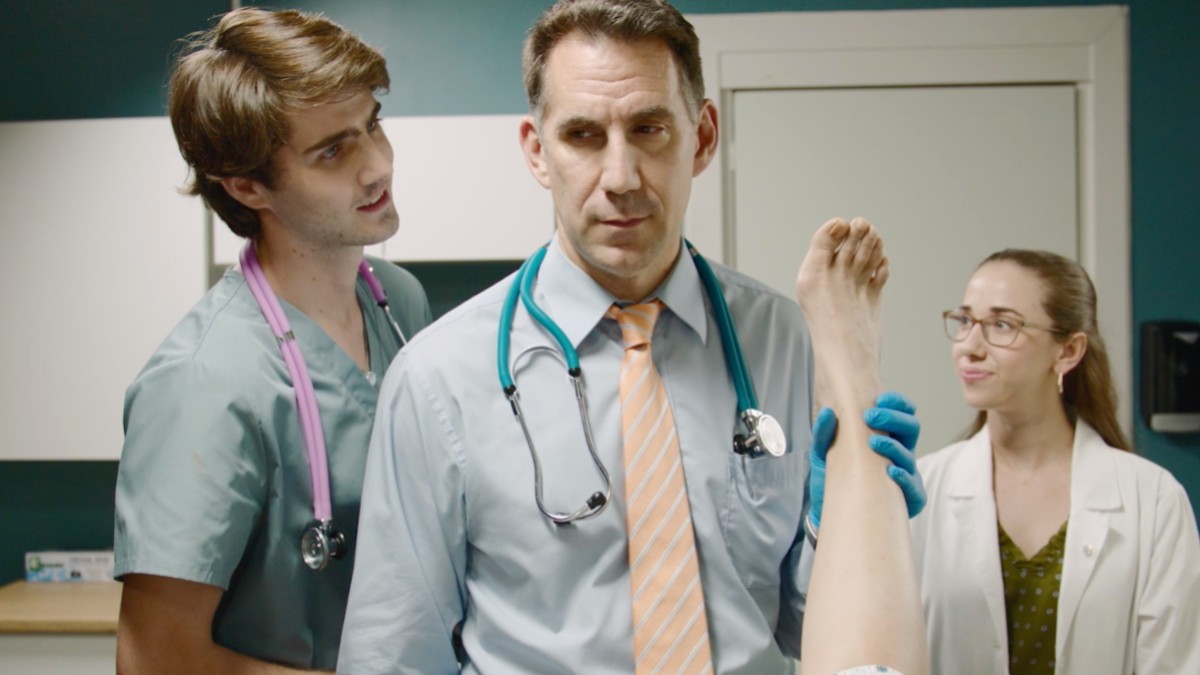
How do you balance both at the same time?
JT: I honestly find acting so much easier if you’ve written the character and the story. So, I think it’s sneakily easier to act if you’ve written it. As actors coming fresh to a script, we have to do a lot of thinking, research, and creating of backstory for a character. If I’ve written it, however, that work is mostly done. What’s slightly more difficult is being a producer because, on any given day, I had to be very focused on many elements of the production while I also carried the lead role in the show.
I think there, my business background helped a lot, but more so, it was having a production company and director in Drue that I really trusted to do the heavy lifting. Pre-production prep was also very important to relieve me of many of the nagging producer’s concerns on shooting days, which again was due in large part to having a great production team in place. But even with all that, every day, I was thinking about a lot of elements that one never has to think about as an actor. So, it’s tiring but honestly, I’d do it again in a heartbeat because it was the joy of my career.
Did you struggle to align your creativity with financial restrictions?
JT: I had been saving for a production of this scale that I was passionate about for a very long time. So, in a way yes. I had worked a long time to be able to finance a production like this, and the stress of whether I could pull it off knowing this was a major investment was real. The flip side is that all that advance work to have the funding set allowed me to focus purely on the writing and pre-production which was a real advantage and I acknowledge a huge privilege.
UPCODE. Episode 1: A Brilliant Doctor. An Evil Insurance Company. A Run For Your Money
ThiAny tips for others looking to create their own projects?
JT: I had written, produced, and acted in several short films before this. I had performed and improvised for years and am constantly still in acting classes. I was an EP on a feature called Centigrade released last year and during that project specifically, I was on-set almost every day, and involved in and exposed to elements that I think many EPs would not typically be (thanks to the grace and welcoming of that creative team) so I sort of used that as my film school. The point is my advice is to just start, learn and create. There’s no shortcut to learning how to create other than creating (and maybe apprenticing) as much as possible. Also network. I’m honestly terrible at selling myself and need to do better. So, I’ll start here: if any streaming platforms want to pick up our show, I’d welcome the discussion!
Who is your creative idol and what do you love about their work?
JT: So many people. Ricky Gervais’ journey to create the original Office is so specifically similar to mine in that he literally worked in a corporate office and transitioned from that into making a comedy series. He then of course went on to make so much other amazing content. I admire tons of improvisers & actors who make their own content, including Kristen Wiig, Amy Poehler, and Julia Louis-Dreyfus. I also admire comedians who make a real statement with their comedy through satire. Upcode is a broad comedy but it takes a hard satirical swing at the unfairness in our healthcare system. I think what Jon Stewart, Trevor Noah, John Oliver, Colbert have done to elevate comedy with very well-researched, well-crafted, and truly funny satire is important and something I aspire to. For Upcode, we felt like moving that satirical voice that’s currently in a talk-show format to a sitcom format was a leap from whose time had come.
What types of stories are you interested in telling next?
JT: First, we want to make a full 12-episode season of Upcode. I am also working on a feature suspense-comedy based on my emancipation from Wall Street. From there, I want to continue to make comedy and content that is satirical and carries a message.
Tell us what you think of the interview with the Jerry Topitzer. What do you think of it? What ideas did you get? Do you have any suggestions? Or did it help you? Let’s have your comments below and/or on Facebook or Instagram! Or join me on Twitter.
Follow Jerry Topitzer on Social Media
Website
IMDb
Facebook
Twitter
Instagram
YouTube
MORE STORIES FOR YOU
The Key Facts Behind How Jeff Nichols Made The Indie Hit MUD
Jeff Nichols gives himself directorial challenges to master on every project.
In Conversation with Michael Oblowitz Director of Confidential Informant
Confidential Informant stars Mel Gibson, Dominic Purcell, and Kate Bosworth

